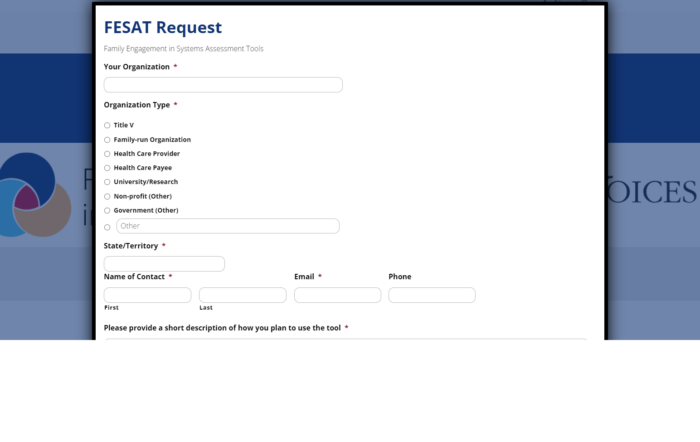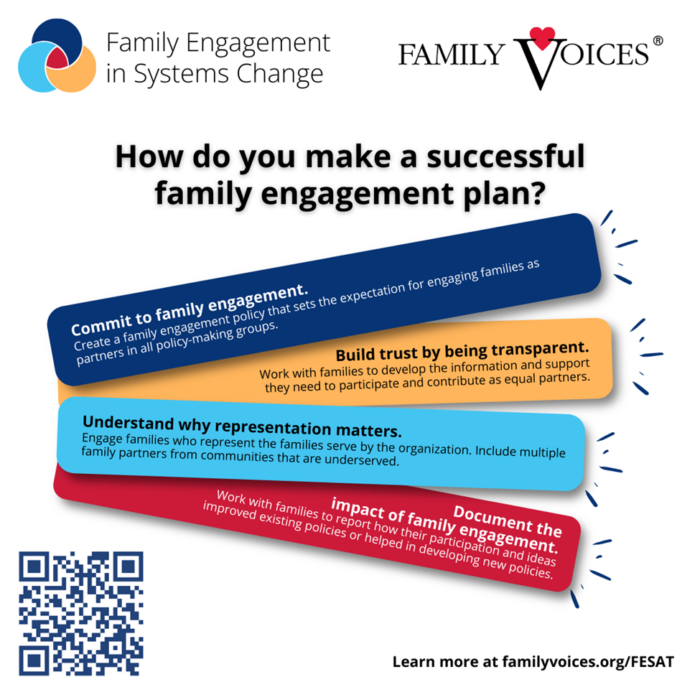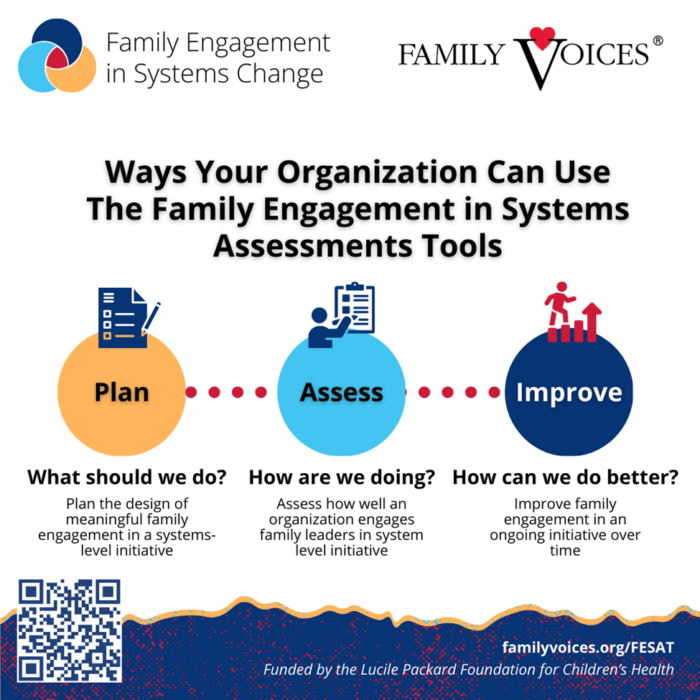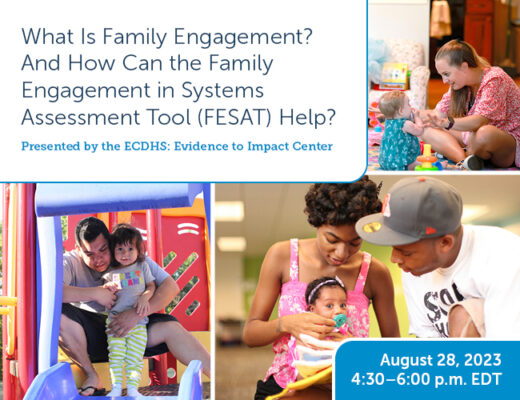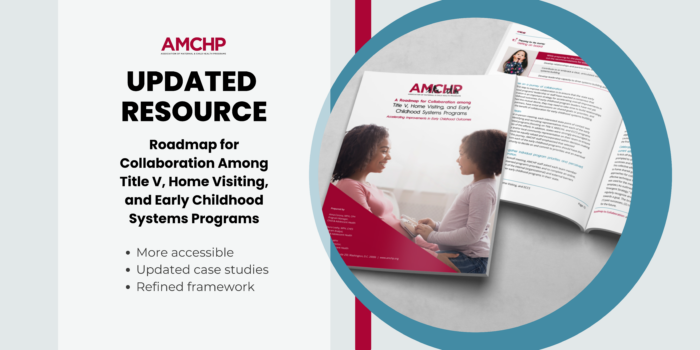Family Engagement in Systems Assessment Tools (FESAT)

It’s critical for individuals and families who receive services from a system of care to have a voice in informing the policies and practices that govern the services they receive. This ensures policies, practices, services, supports, research agendas and protocols, and other systems-level initiatives are family-centered and equitable. Moreover, when child- and family-serving organizations engage families in systems change, there are fewer unanticipated adverse consequences.
Family Voices created the free Family Engagement in Systems Assessment Tools (FESAT) that child- and family-serving organizations can use to plan, assess, and improve family engagement. The suite of FESAT resources includes:
- A user guide with instructions on how to use the FESAT, guidance on how to use results, and appendices with examples of uses and definitions of terms.
- A 20-item self-assessment tool that staff and families use together to assess family engagement in policies, programs, and other systems-level initiatives.
- An Excel score sheet that calculates FESAT scores and automatically populates a bar graph to help organizations understand how well they are providing the support and information that both families and staff need to partner, participate in, and contribute to systems-level initiatives.
- A toolkit with a checklist, strategies, and resources to help improve and strengthen family engagement in systems-level initiatives.
Request access to the FESAT here. Once completing the FESAT request form, you will be directed to a page where you can download the user’s guide, self-assessment, score sheet, and toolkit. There is no charge for the FESAT.
Four Domains of the FESAT
- Commitment: Family engagement is a core value.
- Transparency: Access is provided to relevant knowledge and support.
- Representation: Engaged families represent the diversity of the community served (e.g., race/ethnicity, culture, language, geography).
- Impact: The initiative identifies what has changed and what the organization is doing differently because families are involved.
Three Ways Child- and Family-Serving Professionals Can Use the FESAT
Plan: What should we do?
Use the checklist in the FESAT toolkit to establish family engagement processes.
- Identify supports already in place to ensure meaningful family engagement.
- Explore strategies and resources for additional ways to encourage and support family engagement.
Assess: How are we doing?
Use the FESAT self-assessment tool to learn whether families have the information and supports they need to participate, partner, and contribute to decision-making groups.
- Compare perspective on how family engagement is going.
- Identify what is working well.
- Identify areas for improvement.
Improve: How can we do better?
Use the FESAT self-assessment and toolkit to track progress in family engagement efforts.
- Complete the FESAT and use the results as a baseline score.
- Identify an area for improvement and select a strategy from the FESAT toolkit that can help.
- Complete the FESAT again at scheduled intervals and compare results to the baseline.
Family Engagement in Systems Assessment Tools (FESAT)
Once completing the FESAT request form, you will be directed to a page where you can download the user’s guide, self-assessment, score sheet, and toolkit. There is no charge for the FESAT.
